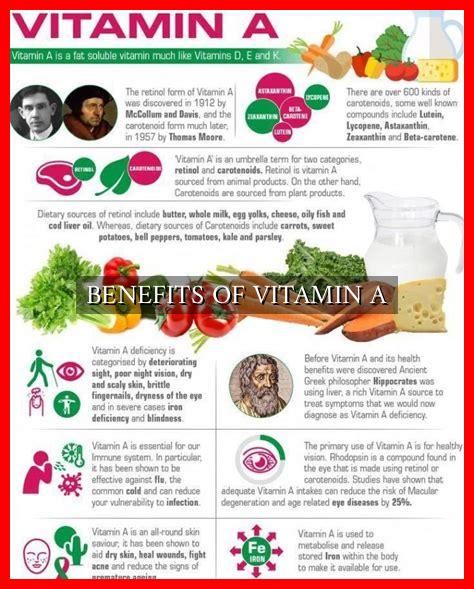-
Table of Contents
The Benefits of Vitamin A
Vitamin A is a crucial nutrient that plays a vital role in maintaining overall health and well-being. It is a fat-soluble vitamin that is essential for various bodily functions, including vision, immune system support, and cell growth. In this article, we will explore the numerous benefits of vitamin A and why it is important to include this nutrient in your diet.
Improved Vision
One of the most well-known benefits of vitamin A is its role in maintaining good vision. Vitamin A is essential for the proper functioning of the retina, which is the part of the eye that allows us to see in low light conditions. A deficiency in vitamin A can lead to night blindness and other vision problems.
- Carrots are a rich source of beta-carotene, which is converted into vitamin A in the body and helps improve vision.
- Studies have shown that vitamin A supplementation can help prevent age-related macular degeneration, a leading cause of blindness in older adults.
Immune System Support
Vitamin A plays a crucial role in supporting the immune system and helping the body fight off infections and diseases.
. It helps maintain the integrity of the skin and mucous membranes, which act as barriers against harmful pathogens.
- Research has shown that vitamin A deficiency can weaken the immune system and increase the risk of infections.
- Supplementing with vitamin A has been shown to reduce the severity and duration of respiratory infections, such as the common cold.
Cell Growth and Development
Vitamin A is essential for cell growth and development, particularly in children. It plays a crucial role in the growth and differentiation of cells, including those in the skin, eyes, and internal organs.
- Pregnant women need adequate vitamin A to support the healthy development of the fetus, particularly in the formation of the eyes and central nervous system.
- Vitamin A deficiency in children can lead to stunted growth and delayed development.
Antioxidant Properties
Vitamin A acts as a powerful antioxidant in the body, helping to neutralize harmful free radicals that can damage cells and lead to chronic diseases. It helps protect the body against oxidative stress and inflammation.
- Studies have shown that vitamin A supplementation can help reduce the risk of certain types of cancer, including lung cancer and skin cancer.
- Antioxidants like vitamin A can help slow down the aging process and promote healthy skin.
Conclusion
In conclusion, vitamin A is a vital nutrient that offers a wide range of health benefits, from improved vision to immune system support and cell growth. It is important to include vitamin A-rich foods in your diet, such as carrots, sweet potatoes, spinach, and liver, to ensure you are getting an adequate amount of this essential nutrient. Whether through dietary sources or supplementation, incorporating vitamin A into your daily routine can help support overall health and well-being.
For more information on the benefits of vitamin A, you can visit Healthline’s article on Vitamin A Benefits.





